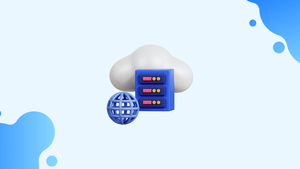The biggest decision is whether to have a cloud-based or in-house server infrastructure. While it may sound like a black-or-white selection, there are many things to consider. The first factor is how important uptime is to your business. Cloud solutions are usually more expensive than in-house, but the benefits of being in the cloud can far outweigh the costs for some businesses. For example, an online business that is reliant on web-based transactions will consider uptime an extremely important factor; therefore, they will likely be willing to pay more for a cloud-based solution that can guarantee a certain level of uptime. Other businesses not as dependent on uptime may be more suited to an in-house setup.
Here are some pros and cons of Cloud VS in-house servers.
In-House Server
Pros
- Gives you physical control over your backup.
- Keeps critical data in-house. No third party has access to your information.
- No need to rely on an Internet connection for access to data.
- Can be more cost-effective for small to mid-sized companies.
Cons
- Requires a capital investment in hardware and infrastructure.
- Needs space in your office for a rack or server room/closet, in addition to dedicated IT support.
- Maybe more susceptible to data loss during disaster situations due to its in-house location. How often you take the data offsite will reflect how much data you’ll lose in an emergency.
- No uptime or recovery time guarantees.
Cloud Server
Pros
- No need for onsite hardware or capital expenses. Well-suited to smaller companies that may outgrow storage too quickly.
- Storage can be added as needed. Solutions are often on-demand, so you only pay for what you need.
- Backup and restore can be initiated from anywhere, using any computer, tablet, or smartphone.
- Data can be backed up in the cloud as regularly as 15-minute intervals, minimizing data losses in disaster situations. Small data set recovery time is improved.
Cons
- Full data recovery could prove very time-consuming and impactful on systems.
- If the Internet goes down on your side or on your cloud provider’s side, you won’t have access to any of your information.
- Every organization will have a limit to data that can be stored in the cloud due to storage availability and cost.
- The costs of the data recovery could outweigh the benefits for companies that are not as dependent on uptime and instant recovery.


